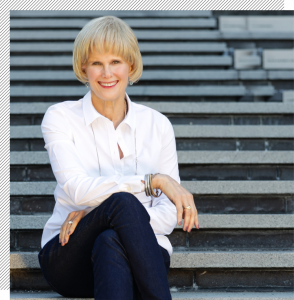How to Boost Your Thought Leadership PR with a Powerful Personal Brand
A personal brand is like a powerful fuel for thought leadership PR — and when used correctly with other PR tactics, it can skyrocket your success.
Everyone with business goals needs a personal branding strategy. A personal brand will help in many areas of your life, including growing your business, advancing your career, and getting media attention.
What is a Personal Brand — and What is it Not?
First, let’s get a clear picture of what a personal brand is not.
A personal brand is not a social media presence. Social media is just one piece of the personal branding puzzle — a tool that, when used in the right way, can enhance a personal brand.
But a personal brand is more than an online representation of who you would like to be. It must first be seen in your personal and professional life before you represent it on social media.
Personal branding is not the same as self-promotion. Self promotion begins and ends with self-interest, while personal branding involves advancing yourself by serving others. Start working in the interest of others, and your personal brand will fall into place.
A personal brand is not what you do. It is not a job title, or a company name. Instead, it must represent an authentic you — your personality, personal views, and opinions, especially as these relate to an area of expertise.
A personal brand is not the same as thought leadership. You may be asking “What is thought leadership” and how does it differ? Thought leadership is a strategy and tactic to showcase your knowledge and expertise. A personal brand is the glue that holds your thought leadership together. It solidfies what you’re about and puts a stamp of authority on it.
Personal branding is the journey of defining your business self. It represents what you stand for to those you work with, whether it be clients, partners, or vendors. It means that you are a known entity who others can turn to for advice.
A personal brand can be much like a trademark — something that you own, carry with you wherever you go, and continually refine.
Take Arianna Huffington, cofounder of The Huffington Post, journalist and businesswoman. Huffington remade herself after the dissolution of her marriage to Congressman Michael Huffington, going from arch conservative to liberal and becoming a titan of the Internet. She has continued to pivot, using her personal brand to embrace health and wellness issues, and leaving the Huffington Post for a startup focused on health and wellness.
Now, of course, most of us will never attain the “Huffington” status of personal branding, but we can build a brand that carries weight and demands respect within our industry.
Here is a personal branding strategy to help you develop your own brand.
1. Focus on One Area of Expertise
Don’t try to be the expert at everything — people have a hard time wrapping their minds around someone with multiple areas of expertise. Instead, boil down your expertise to one area, and be as specific as possible with that.
For example, instead of presenting yourself as a Security Expert, sharpen it to Leading Security Expert Specializing in the Financial Sector. This level of precision differentiates you from the zillions of other security experts and highlights your particular area of expertise.
2. Create Personal Profiles that Reflect That Expertise
This includes your personal profiles on social media, as well as your bio on your website. All your profiles should showcase a coherent and consistent message. This is an opportunity to display your qualifications as an expert, and to present your views.
Handpicked Related Content
Nailed It! 5 Ways to Create a Killer LinkedIn Summary
3. Write a Regular Blog on Your Area of Expertise
Writing a regular blog is a great way to address issues and trends impacting your industry. It gies you a forum for articulating your point of view and engaging prospects.
Handpicked Related Content
8 Powerful Ways to Energize Your B2B Content Marketing Strategy
4. Speaking Engagements
Public speaking wins you major brownie points in the eyes of onlookers. When you pair your expertise and viewpoint with a smooth and engaging delivery, you help establish your brand.
Start with small, local events, until you can build your confidence and work out any kinks. As you become better known for your special and authentic point of view, your personal brand will grow.
5. Create a Signature Piece of Content
A signature piece of content, such as a book, special guide, or white paper, will set you apart from your peers. It takes dedication, a depth of knowledge, insight, and expertise to create such a piece of content.
When people see your work, it will elevate you as a serious contender in your industry.
Once you’ve put in the time to shape your personal brand, it is yours forever. It will follow you wherever you go, and whatever you do.
Let’s now look at how a personal brand can benefit you in one area in particular: becoming a thought leader.
How Personal Branding Supports Thought Leadership Goals
1. Adds to Your Network
Your personal brand offers a patina that will draw people to you. Think of it like a name tag that tells others that you are a must-know person in your industry.
People will recognize your brand and reach out to you on social media with connection requests. It also makes it easier to network with people at in-person events. As you engage people and they see your personal brand in action, it will make collaboration easier in the future.
2. Builds Your Business
A personal brand can jumpstart a business. As a known quantity, your are catapulted from lone entrepreneur to trusted, knowedgeable business person.
Among personal brand examples of note, think for a minute about Seth Godin, best-selling author and entrepreneur. When Godin attaches his name to a new business, people stand up and take notice. Why? Because he has cultivated his personal brand to carry weight and stand for quality; it’s why his Kickstarter book project reached its monetary goal within a mere 3 hours!
3. Gives a New Level of Confidence
As you work on your personal brand in both your personal and professional life, you develop an authentic voice. You know who you are — your point of view, your opinions, and your values.
As you share this authenticity with people, and you receive a positive reaction, your confidence level and self-esteem will grow. Confidence is one of the identifying marks of true thought leadership.
4. Brings in Media Opportunities
Over time, as you develop and shape it, your personal brand will grow in importance. If Donald Trump, Bill Gates, or Warren Buffet have an announcement, journalists flock to cover it. Honestly, few people can demand that level of stand-to attention. But, a well-respected personal brand will mean a ready ear from journalists and bloggers within your industry.
Handpicked Related Content
How to Land Media Coverage for Your B2B
5. Means New Career Opportunities
Whether you plan on staying with your company forever, or are open to new ideas, a personal brand is sure to help. Many who have developed a strong personal brand do not have to go far before they are offered a new career opportunity.
This is because their personal brand has provided a level of recognition and perceived expertise. Many have left one career only to be offered a C-level position within a new company — all because of the personal brand they have developed.
Key Points to Remember…
- A personal brand can help in building a network — both online and at in-person events.
- A personal brand can help you to build your business.
- New media opportunities often come up because of a prominent personal brand.
- People with a well-defined personal brand often find new career opportunities come their way.
Whatever your industry, a personal brand is a valuable commodity with no expiration date. It serves the interests of thought leadership, and drives you forward into a brilliant future.
You May Also Enjoy Reading…





